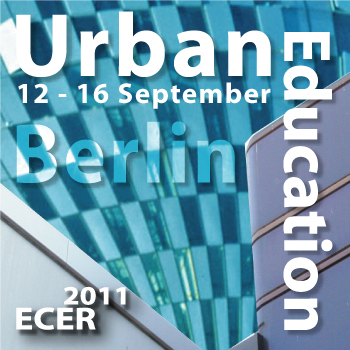Why immigrant students are better off in certain types of educational systems or schools than in others?
The effects of educational systems, school-composition, track-level, parental background and immigrants’ origins on the achievement of 15-years old immigrant students
Thursday, 15.09, 13:30 - 14:30
Jaap Dronkers, Rolf van der Velden & Allison Dunne
Maastricht University & GHK Consulting Ltd
The main research question of this paper is the combined estimation of the effects of educational systems, school-composition, track-level and country of origin on the educational achievement of 15-year-old immigrant students. We specifically focus on the effects of socioeconomic and ethnic background on achievement scores and to what extent these effects are affected by characteristics of the school, track or educational system these students are in. In doing so, we examine the ‘sorting’ mechanisms of schools and tracks in highly stratified, moderately stratified and comprehensive education systems. We use data from the 2006 PISA (Programme for International Student Assessment) wave.
Compared to previous research in this area the main contribution of this paper is that we explicitly include the track-within-school-level as a separate unit of analyses, which leads to less biased results of the effects of characteristics of the educational system.
The results highlight the importance of including track-level and school-composition factors in the debate of educational inequality of opportunity for students in different education contexts. The findings clearly indicate that the effects of educational system characteristics are flawed if the analysis only uses a country and a student level and ignores the track-within-school-level characteristics. From a policy perspective, the most important finding is that educational systems are not uniformly ‘good’ or ‘bad’, but they have different consequences for different immigrant groups. Some immigrant groups are better off in comprehensive systems, while other groups are better off in moderately stratified systems.
For the educational achievement of immigrant students at the lower track level the moderately stratified system is clearly superior to the comprehensive or the strong stratified systems. The immigrant students at the higher track level get the best results in the comprehensive systems, and not in moderately stratified or strongly stratified ones.
The direct effect of parental ESCS on educational achievement is strongest in comprehensive systems, and smaller in moderately and strongly stratified educational systems. The effect of the track-level on educational achievement is absent in comprehensive educational system, while the effect is positive in all stratified educational systems. But the influence of parental ECSC on the selection of students into different tracks and schools is higher in stratified systems, than in comprehensive systems where there is no selection.
Ethnic school-diversity has a negative effect on achievement scores, but only for immigrant students, not for native pupils. This negative ethnic school-diversity effect for immigrant students does not vary between educational systems. There is no significant effect of socioeconomic school-diversity on educational achievement.
Immigrant students originating from Islamic countries have a lower educational achievement than equivalent immigrant children, originating from other non-Islam countries. Immigrant students originating from Non-Islamic Asian countries have higher educational achievement than equivalent immigrant children, originating from other non-Islam countries.
Full paper: <link http: www.eui.eu personal dronkers english ecer.pdf _self external link in new>www.eui.eu/Personal/Dronkers/English/ECER.pdf
Prof Dr Jaap Dronkers

Jaap Dronkers is now Professor in international comparative research on educational performance and social inequality at Maastricht University. He was born in Amsterdam in 1945 and studied sociology at the Vrije Universiteit Amsterdam. He has been head of Research of Education and Sociology at SISWO (1976–1986), Associate Professor of the Sociology of Education and Empirical Sociology at the Catholic University of Brabant in Tilburg (1986–1990), Chair in Educational Sciences (1990–1999), and Chair in Empirical Sociology (1999–2001) both at the University of Amsterdam.
Prof. Dronkers was visiting scholar at the Max-Planck Institute for Human Development (1998–1999). Between September 2001 and November 2009 he was Professor of Social Stratification and Inequality at the European University Institute (EUI) in Florence. Since 2002 he has been one of the organizers of the European Network for the Sociological and Demographic Study of Divorce. During 2006/2007 he has been Director of the European Forum The Quality of Education and its Relationships with Inequality in European and Other Modern Societies. In 2009 he was recipient of the Professor Leune Award for his contribution to educational innovation.
During the autumn of 2010 he will be visiting professor at the Doshisha University in Kyoto (Japan). He has published on the causes and consequences of unequal educational and occupational attainment, changes in educational opportunities, effect-differences between public and religious schools, the educational and occupational achievement of migrants from different origins and in various countries of destination, the linkages between school and the labour market, the effects of parental divorce on children, cross-national differences in causes of divorce, education of Dutch elites, and European nobility. He also participates in public debates on topics related to his research.
<link http: www.roa.unimaas.nl cv dronkers nw_dronkers.htm _self external link in new>www.roa.unimaas.nl/cv/dronkers/nw_dronkers.htm
